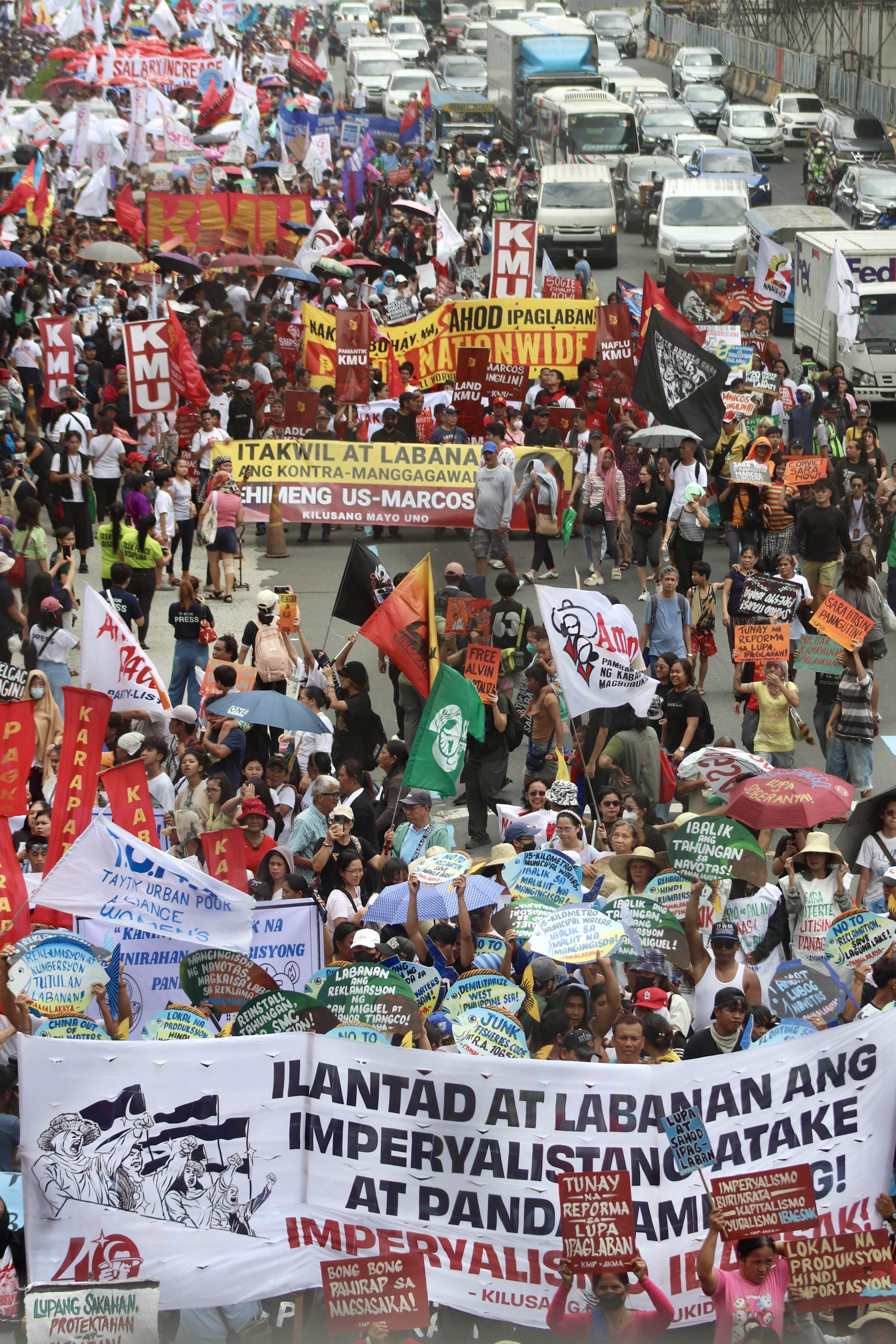In an attempt to steer away from the turmoil that has long plagued the Ninoy Aquino International Airport (NAIA), ranked as among the worst airports in Asia, the government turns again to its expedient fix: privatization. On February 16, the government announced that the much-coveted contract to operate and rehabilitate NAIA was awarded to a San Miguel Corporation (SMC)-led consortium.
The state touts this largest and fastest solicited private-public partnership (PPP) project as a beneficial success. Under the partnership, SMC promises the government a staggering 82.16 percent of revenue share over the next 15 years—extendable for another 10 years—when the consortium will be operating the airport.
NAIA’s sorry state is used as a convenient excuse to turn the state’s responsibilities to the private sector and further pursue a policy of privatization, already seen in the privately operated Light Rail Transit (LRT) 1, and the recent offer of a bundle privatization deal for Metro Rail Transit (MRT) 3 and LRT-2. As the government turns to the same route of solution, the growing monopoly of services only overburdens the toiling public and eviscerates democratic ownership over development.
The perennial justification the state uses for PPP is that it underscores “reduced costs, better risk allocation, faster implementation, improved services and possible generation of additional revenue.”
As appealing as the revenue share terms stand, businesses’ operations still hinge on the need for the continuous generation of profit. Such is the use limitation of private finance: The imperative of the sector to accumulate massive return on investment forsakes the pursuit of accessible service to all. This underlies SMC’s aggressive expansion of ventures, now controlling three of the country’s four biggest airports and several expressways.
The scant share the consortium has on the revenues of operations, thus, will be recouped by making the public bear the brunt of increased fees for services. For one, people can expect increased passenger service charges of up to 95 percent upon NAIA’s privatization, on top of higher airfares expected next month due to the Civil Aeronautics Board raising the fuel surcharge level for March.
Air transport, then, will become more inaccessible to around 2 million overseas Filipino workers. The burdens of privatization and government deregulation of the transport sector have long afflicted ordinary citizens. Such is the case with the planned fare increase for MRT-3 and the much higher fares under a corporatized public utility vehicle modernization program.
Accessible services and democratic control over development are undermined by the collusion of tycoons and the government, turning assets into ventures for personal profit to the detriment of the public.
The private sector already has much of the power in administering processes before a PPP project even begins, starting with the identification of projects oriented toward the interests of businesses. On top of that, the PPP Governing Board was expanded to include a representative from the private sector, broadening their already extensive influence.
Not only is the public deprived of spaces for participation, but it is also outright silenced in the development process. State forces recently abducted anti-reclamation activists Jonila Castro and Jhed Tamano to protect the interests of corporations such as SMC, whose head Ramon Ang is closely tied with the past and current administration, and notorious for displacing communities near coastal areas for reclamation projects.
Such an undemocratic thrust takes flight in full force as the administration remains hell-bent on opening all other aspects of our economy even to private foreign interests through charter change, thereby removing its mandate to be the primary provider of public services.
Rehabilitating NAIA and other public transport facilities will never be realized if these assets forfeit their public character, left in the hands of enterprises with the sole aim of boosting profit at all cost. The relentless drive for privatization must find its place only in the dustbin of antiquity.
Sustainable policies on developing services must hinge on collective control of public utilities: greater participation of citizens in planning and operating state assets they finance through their taxes. It is this democratic access that will pilot our country out of the turbulence of our public infrastructure and services. ●







